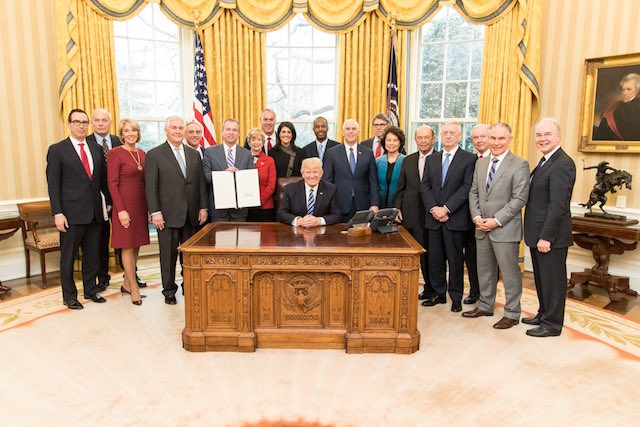
When it comes to politics, I am a firm believer that we should consider people from all perspectives.
After all, who knows more about a woman’s experiences than an actual flesh-and-blood woman?
Who knows more about what it’s like to live in a wheelchair than someone who has actually been in a wheelchair?
And who can better speak to the issues faced by people of colour than someone who has spent their whole life being a person of colour?
Of course, representation is not always perfect. Communities are full of nuance and internal diversity, so an individual from a given community will likely not represent every single aspect of that group. After all, we all have different forms of privilege, just as we are all met with different challenges.
Also, there are politicians who successfully represent marginalized people without being one themselves, actively fighting in support of the issues of concern to their constituents.
That said though, we are still going to end up with much more informed decisions around say, what to do with the lives of women (feels like comma should be here because of the “around say,”) if we actually engage a group of women, rather than a group of men.
Unfortunately, it’s rare that we see this nowadays. I am proud of my own country of Canada, whose intentionally diverse cabinet is made up of immigrants, Muslims, disabled people, native people, and not a small handful of 15 women.
But this is not the norm.
In America, Trump’s cabinet is overwhelmingly white and overwhelming male—so much so that it is in fact the least diverse cabinet since Reagan’s. Yet since Trump has been elected, he has continued to make decisions that have large implications for other groups, but not so much for white men.
Abortion, for example, is a procedure that men will never have to endure, yet Trump and his cabinet have decided that women’s access to it should be limited, as evidenced by the vastly expanded global gag rule. I am not necessarily saying that if you asked a random group of women about their opinions on abortion, that stance would be any different. What I am saying is that too few women were consulted. This was a decision made by men, for women.
And in my personal opinion, that isn’t okay. I do not think that men should have the ability to limit what a woman can do with her life and body, any more than I think that white people should have the ability to limit what people of colour can do or that cisgender people should have the ability to limit what queer or transgender people can do.
If we don’t have the lived experience of belonging to a particular group, then we don’t have the necessary information to tell that group what they should do and how they should behave. Plain and simple—we simply do not know what they deal with on a daily basis.
And yet, I have heard my perspective on this countered multiple times. “I think that people should be chosen for a job based on whether or not they are qualified, not based on whether or not they belong to a specific minority,” people will say.
And I understand. To a certain extent, I even agree. If someone is faced with hiring one of two people: one, a black, transgender lesbian who is completely unqualified in every way, the other, a straight, white man who has spent years preparing for the job, they should of course choose the man.
But from what I can tell, that isn’t what’s happening. Unqualified people are not being chosen over qualified people to fill a minority quota, as this statement seems to suggest.
Rather, in situations such as the one that I described in my home country with Canada’s diverse cabinet, perfectly qualified people are given jobs where they perform up to standards while also offering up their marginalized voice, providing a perspective that a straight, white man lacks.
In other words, the black, transgender lesbian from my example is not only good at her job, but she offers a perspective that would otherwise be lacking.
When I say that we need diversity in politics (and in the workplace, more generally), I’m not saying that straight, white, cisgender, able-bodied, neurotypical men should go without jobs. I’m not saying that minorities should be given any special treatment that others in the majority don’t get.
All I’m saying is that we should support minorities achieving positions that they are perfectly capable of filling, but that they haven’t had the opportunity to fill due to social imbalances like state-sanctioned racism and sexism. There are so many different people in our world, but if our political systems continue to hear the story of only one side, then theirs is the side that will eternally be catered to.
We will continue to enforce inequalities, because as much as it is completely possible for a cisgender man to sympathize with the issues a woman faces and to want to stand up for her, he cannot understand it in the same way that she does.
He has not lived it. She has. Let her tell her story.
Let all of us tell our stories. And let us all fight these battles together.
~
~
Author: Ciara Hall
Image: Wikimedia
Editor: Callie Rushton






Read 0 comments and reply